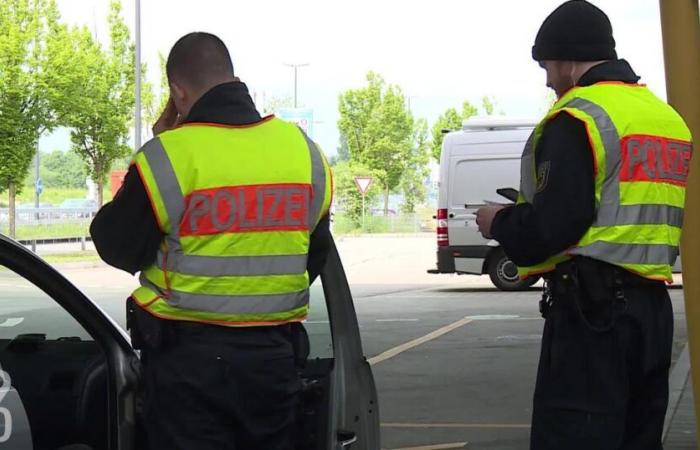
The new German government wants to tighten the screw in immigration. He announced on Wednesday the repression of most undocumented foreigners, including asylum seekers, and a strengthening of border controls. Switzerland denounces an illegal decision and taken without consultation.
Berlin’s goal is to stop illegal immigration. Concretely, interior conservative minister Alexander Dobrindt ordered border police to repress undileged asylum seekers, “except vulnerable groups, such as children and pregnant women”. “Germany must be able to make decisions to reduce illegal immigration figures and asylum requests,” he justified. Migration policy should therefore find “clarity, consistency and control”, he insisted.
Alexander Dobrindt thus returns to a decision taken in 2015, at the height of the migration crisis, which ordered not to repress any asylum seeker on the border.
>> Details in 7:30 p.m.:
Internal pressures
This Immigration Tour of Vis, a subject which dominated the election campaign of the German legislative elections after a series of attacks committed by foreigners, was expected. Already a few weeks before entering into office, the Chancellor had announced that he would make him one of the priority files of his government, in particular to regain the confidence of the voters who left on the far right.
>> On this subject: After the generous reception of 2015, Germany hardens its migration policy et Unpublished alliance between the CDU and AFD in Germany to have an anti-immigration text adopted
But this type of decision is controversial and cannot be taken unilateral, according to the agreements of Schengen/Dublinwhich resolve asylum and border issues at European level.
Lack of consultation criticized in Bern
At a press conference, Alexander Dobrindt said he was in contact with neighboring countries. But this was obviously not the case for Switzerland, which shares more 360 kilometers of borders with Germany. Through a message from the head of the Federal Department of Justice and Police Beat Jans published on the X platform, Switzerland said on Wednesday evening “regret” that Berlin has decided “without consultation” to repress most of the undileged asylum seekers, which constitutes “a violation of the law in force”.
External contents
This external content cannot be displayed because it is likely to collect personal data. To see this content you must authorize the category Social networks.
Accept More info
A telephone interview is planned at the ministerial level between Switzerland and Germany. If Germany was to refuse entry to people who have already crossed the border, at least three principles relating to human rights, Schengen and the Dublin agreement would be raped, the State Secretaries (SEM) told Keystone-Ats on Thursday. The consequences on bilateral agreements between Switzerland and Germany are not yet clear.
Fears for free movement
Because the Federal Council also fears consequences for the economy. Each day, tens of thousands of cross -border workers come to work in Switzerland, not to mention tons of goods that pass the border. However, the controls have already been strengthened since 2023 on the German side and 3,000 additional agents should be deployed at the borders, to bring their number to 14,000.
>> Read also: Germany will intensify controls at all its borders “to reduce irregular immigration”
The Federal Council has thus called that the citizens of the two countries can continue to circulate without hindrance.
The German Interior Minister Alexander Dobrindt hastened to add that the measure would not “take the form of an overload” of his neighbors. “We will not close the borders, but it is a question of strengthening control,” he argued, trying to reassure the neighbors of Germany. Some, like Poland, are already very critical of the controls which considerably slow down the circulation of border workers.
The announcement of these measures immediately reacted to the Polish head of government Donald Tusk. The latter thus prayed to Chancellor Friedrich Merz “to focus on the external borders of the EU” and preserve the Schengen zone.
Agencies/Vic







